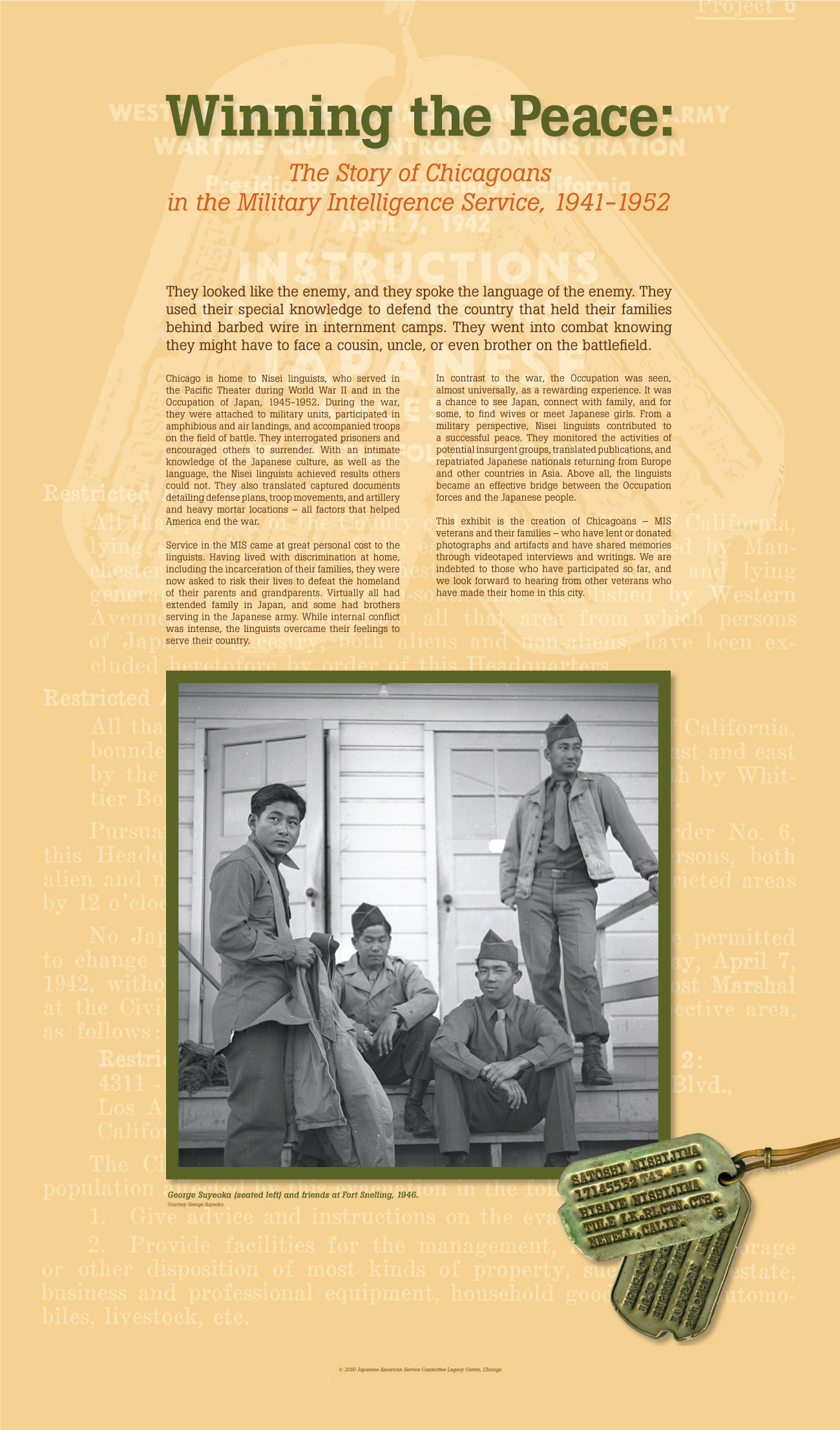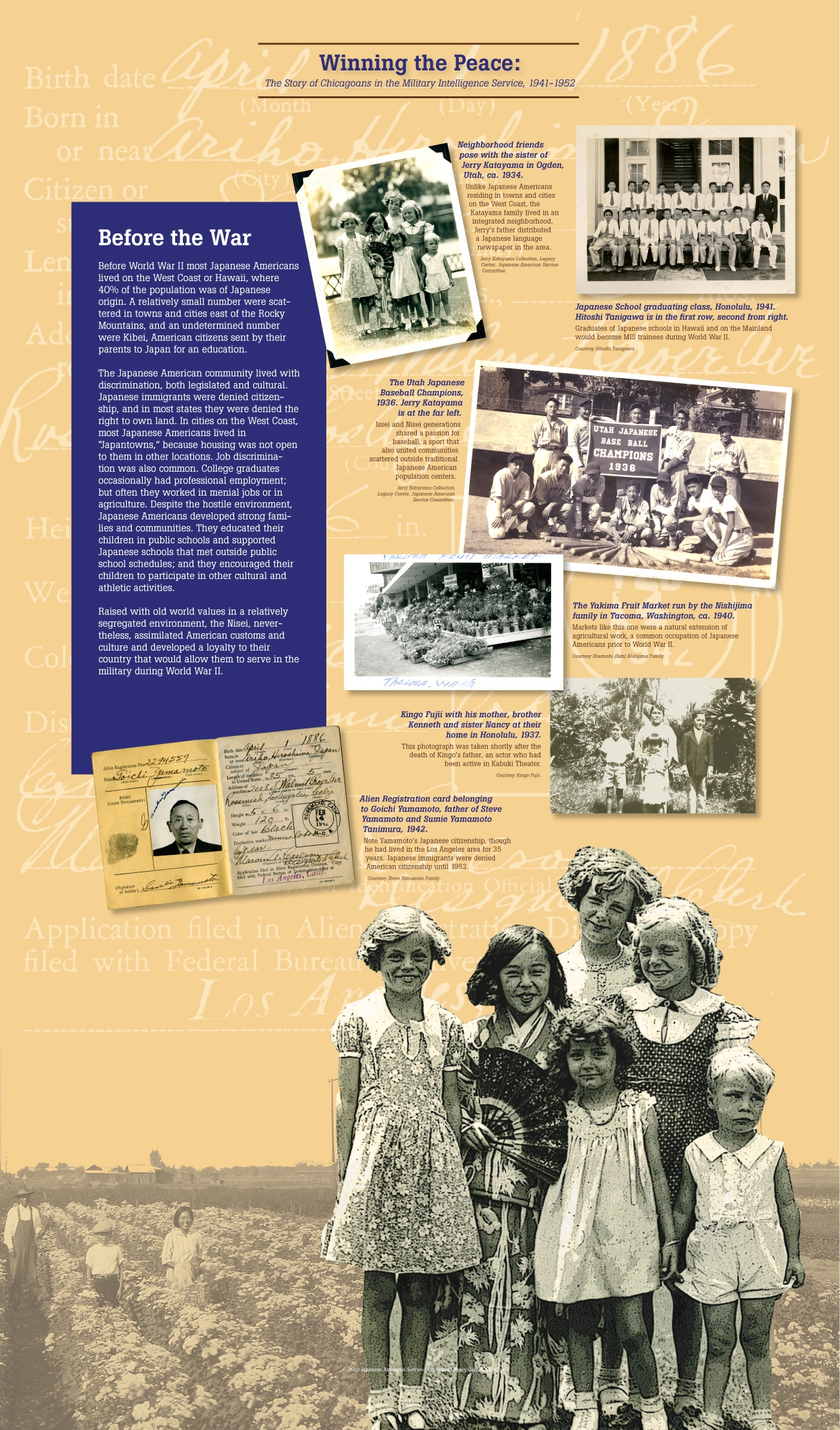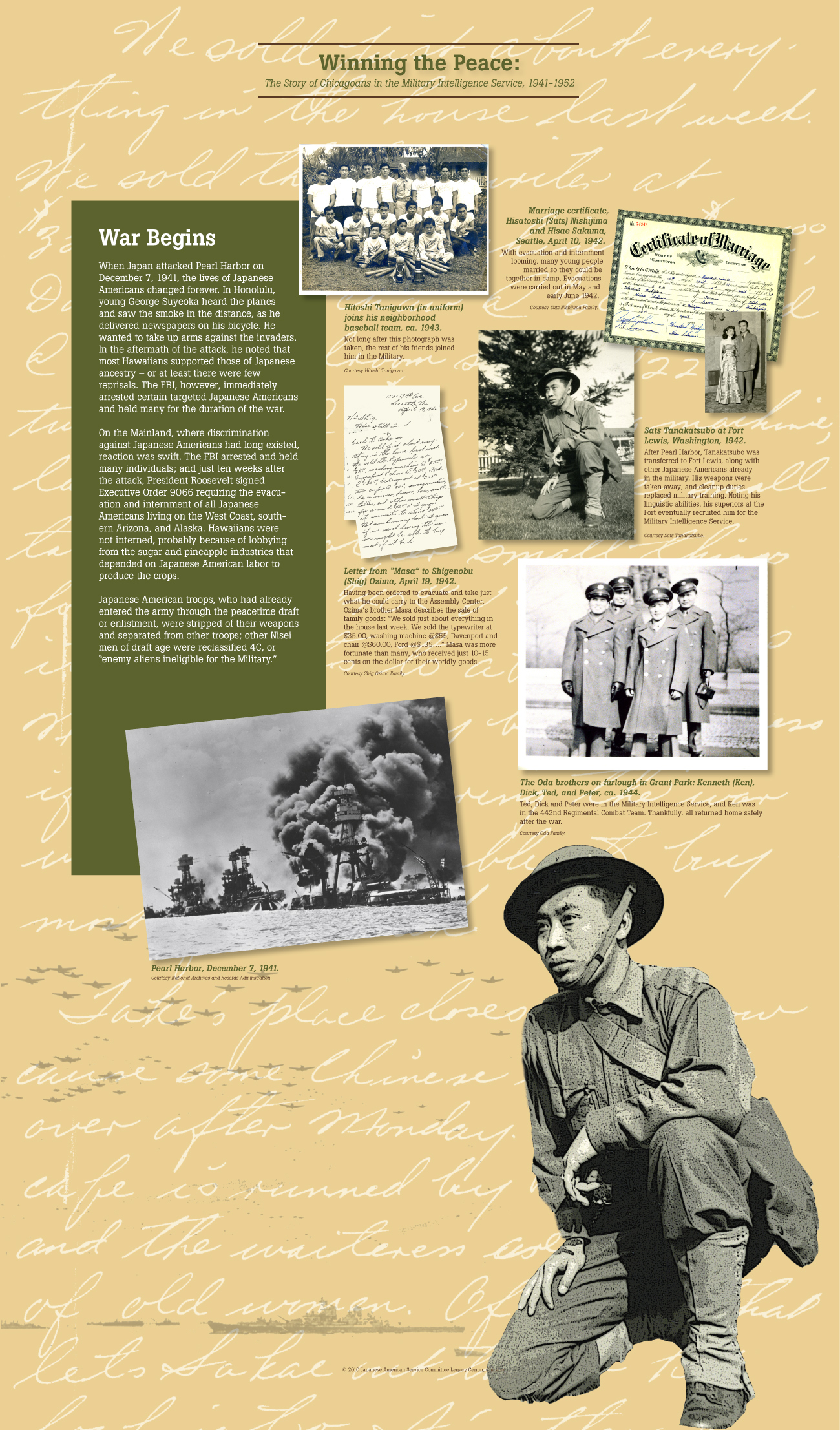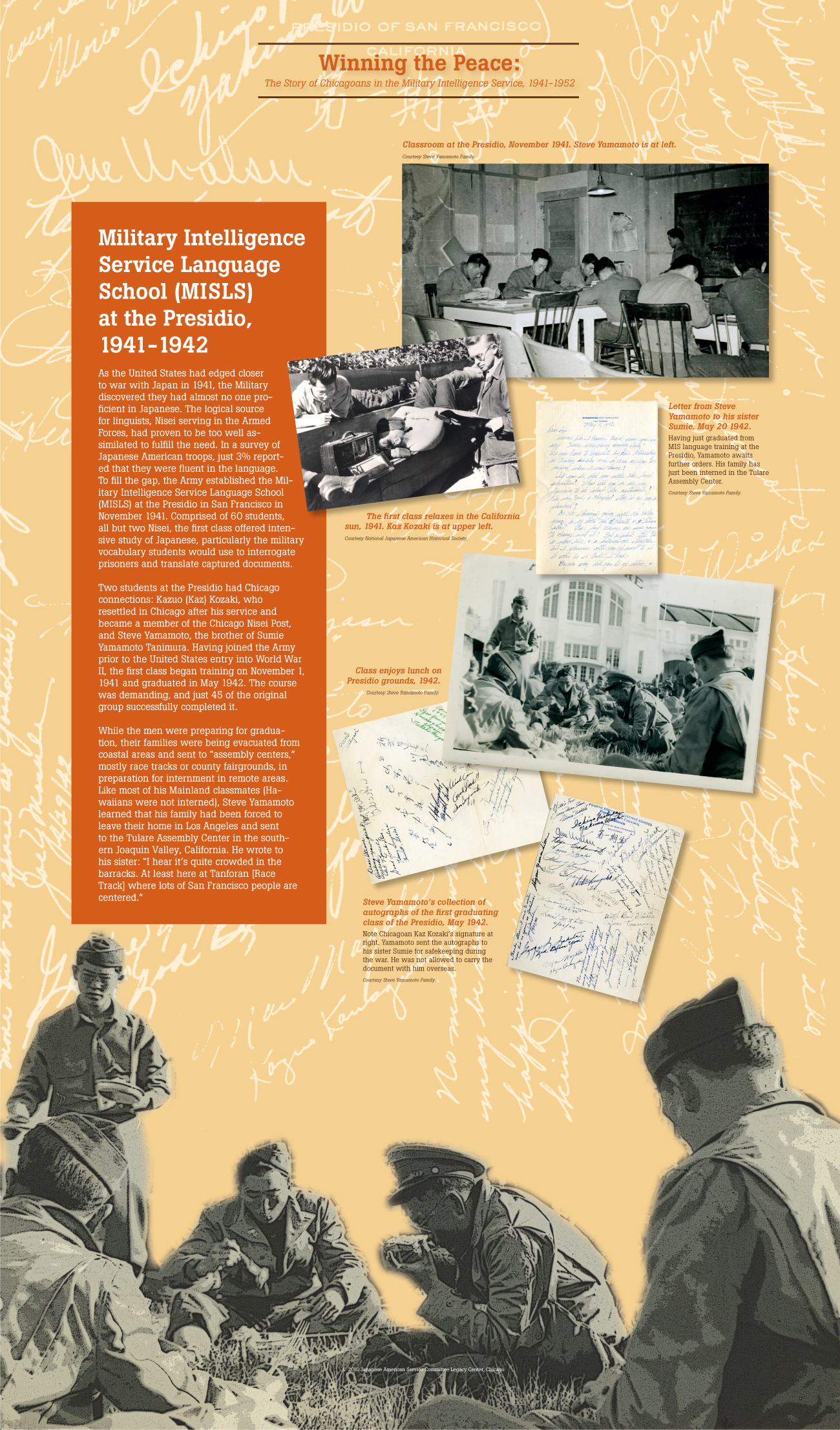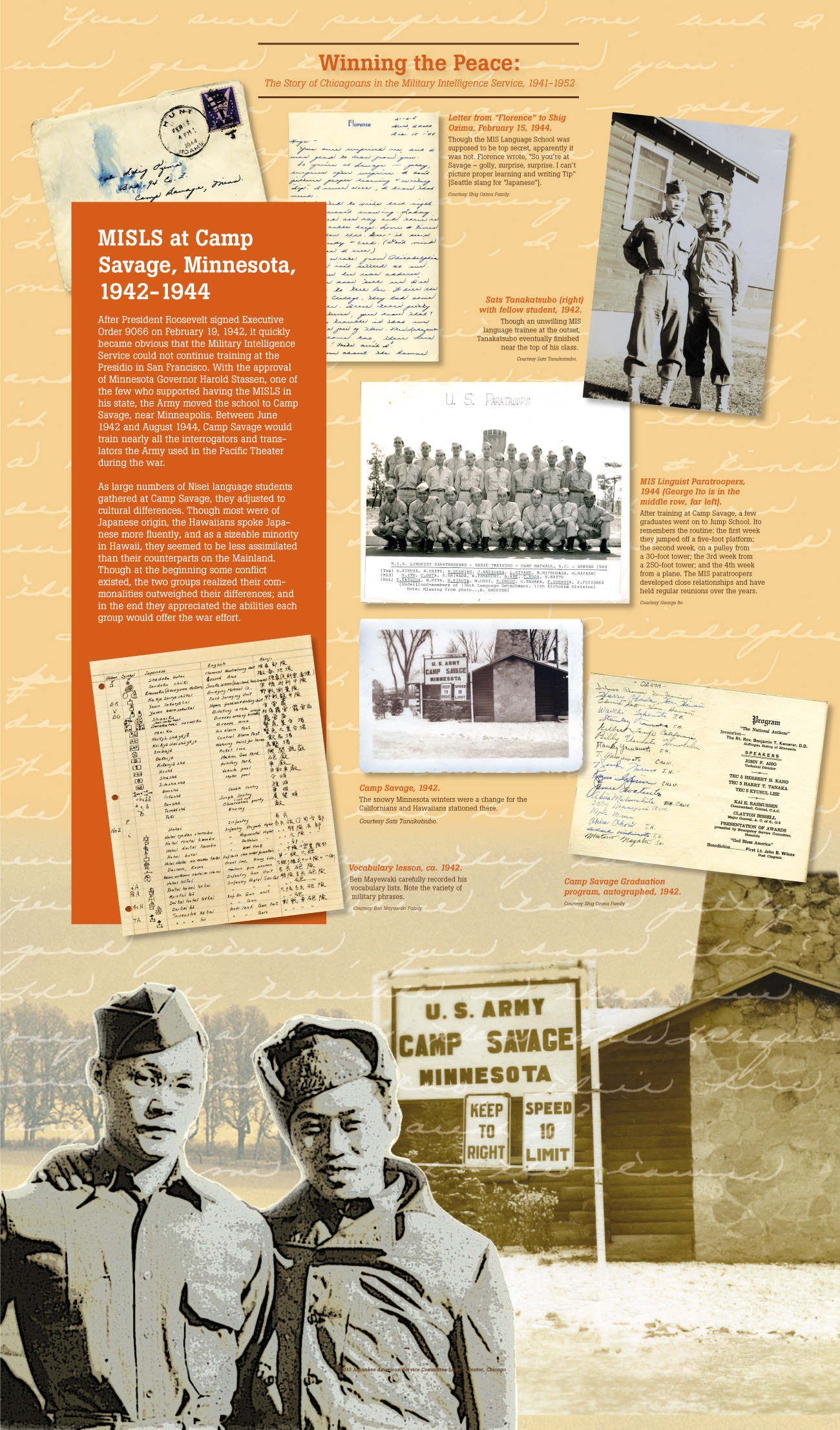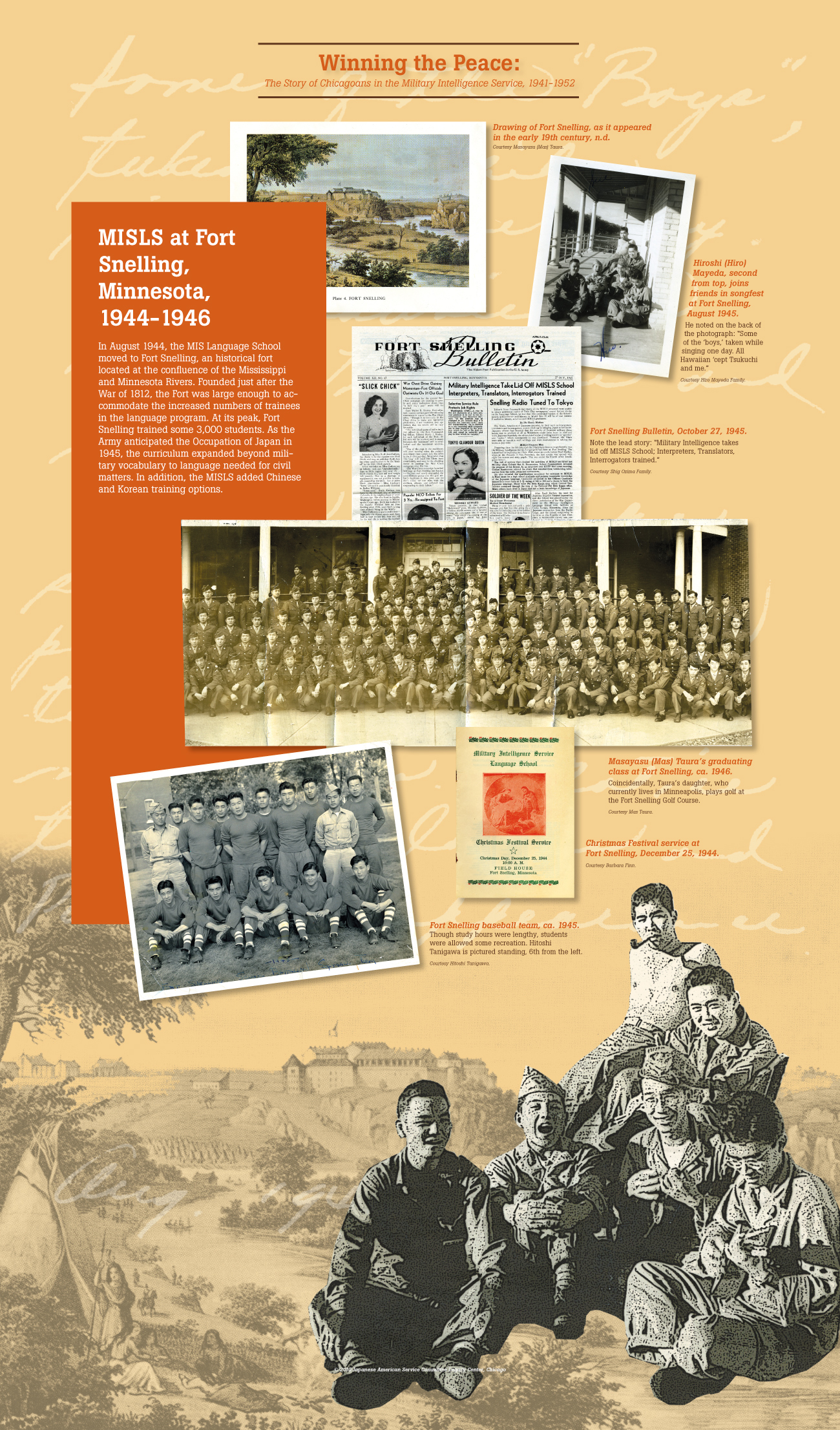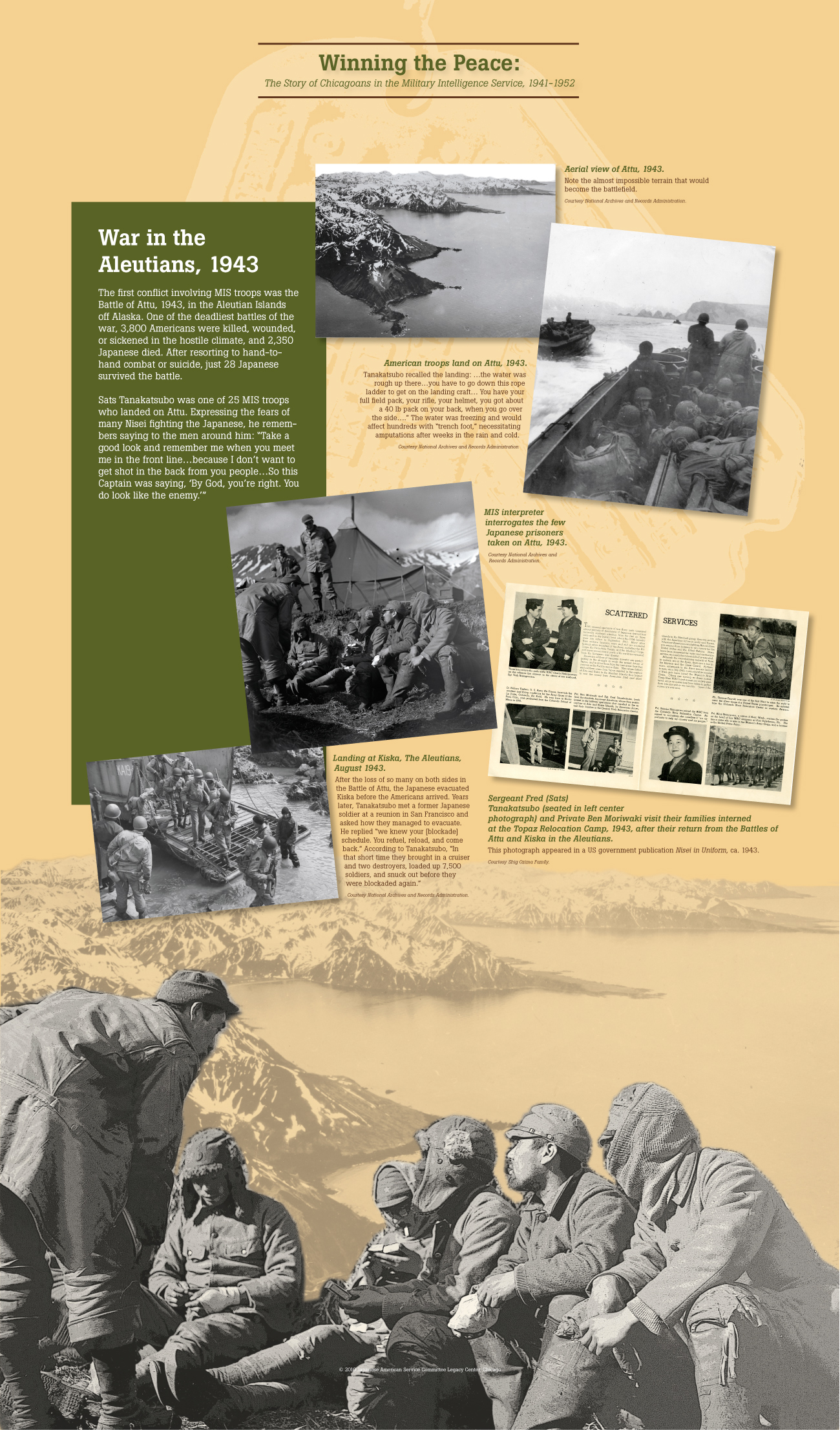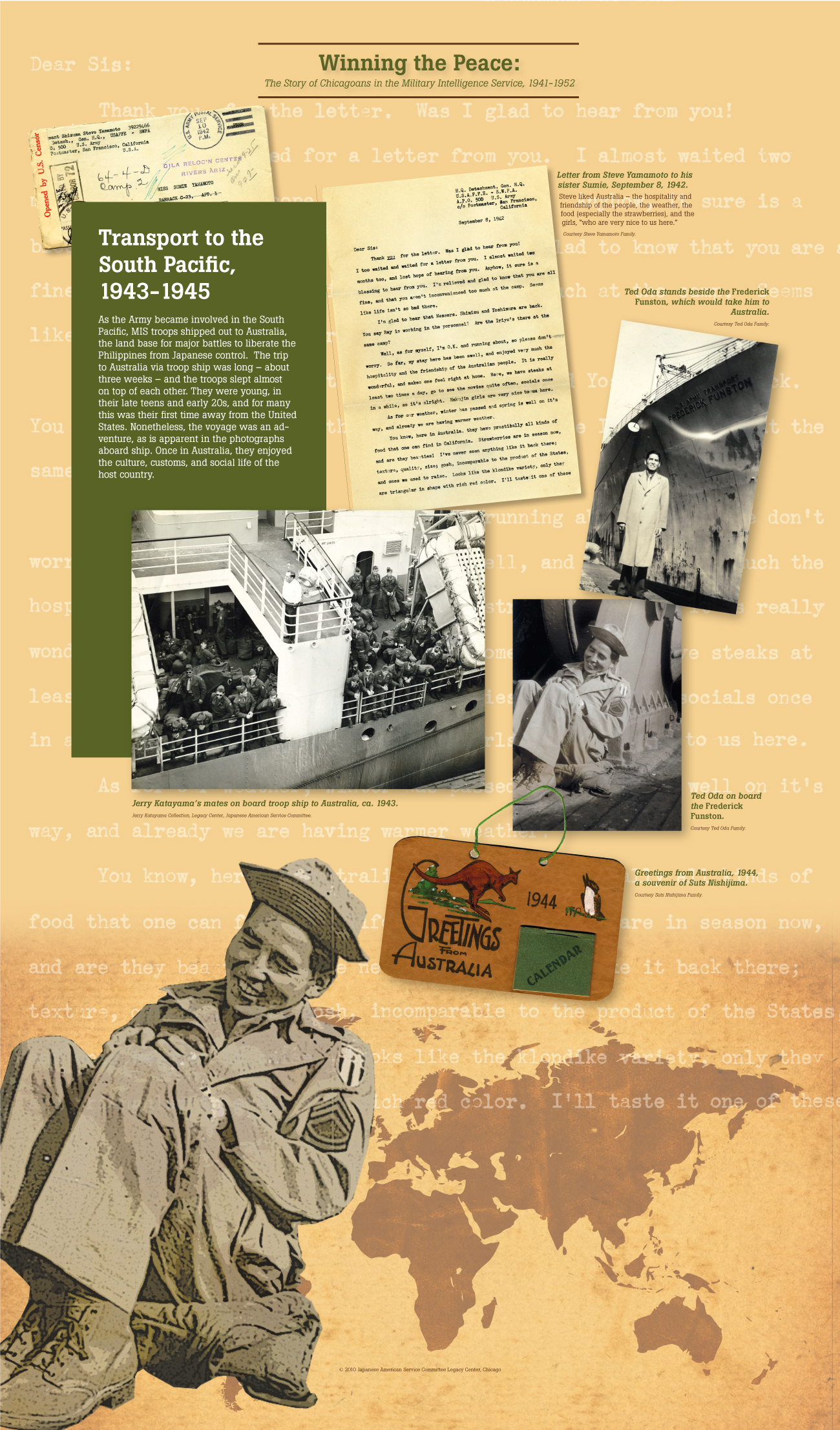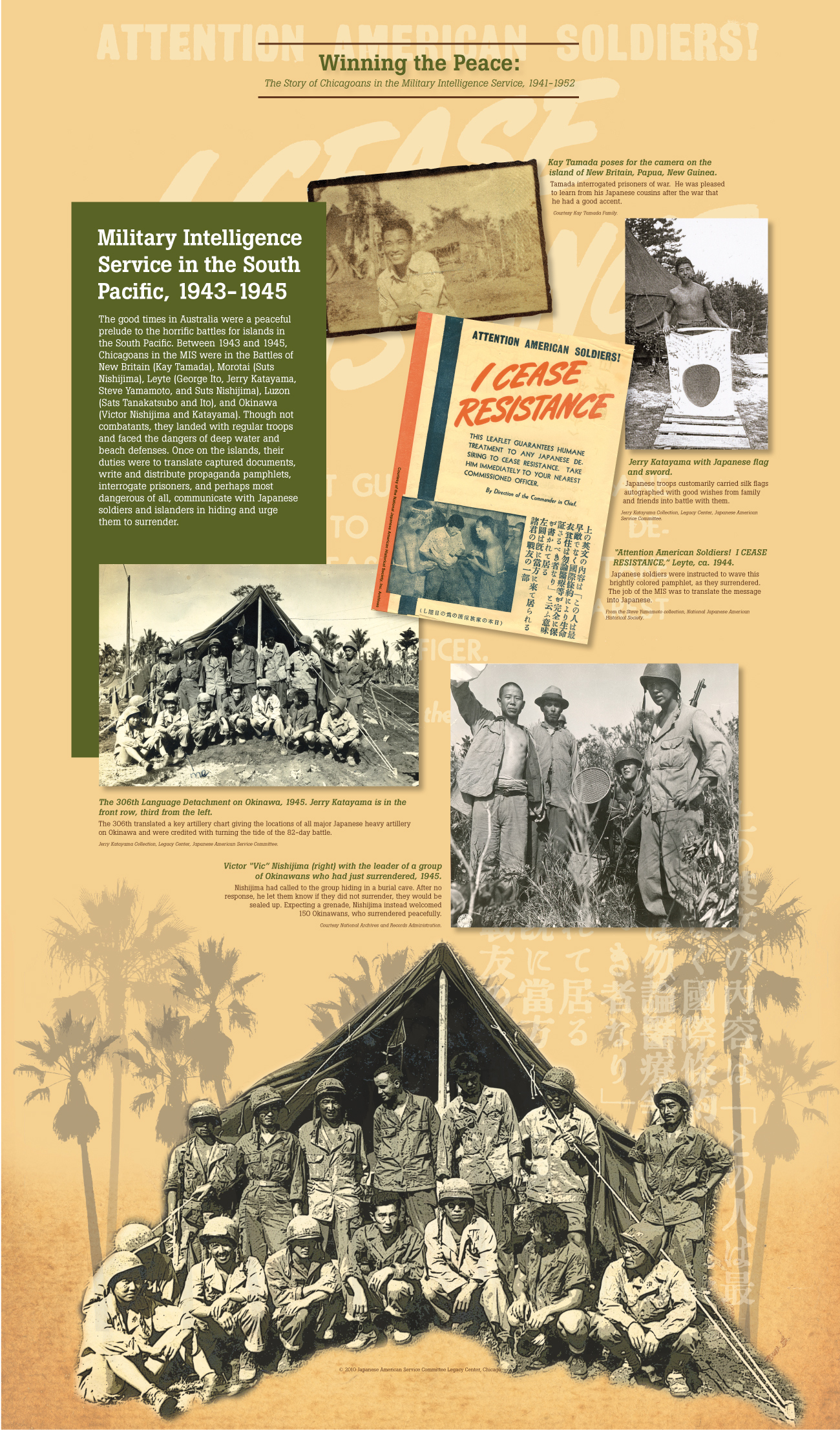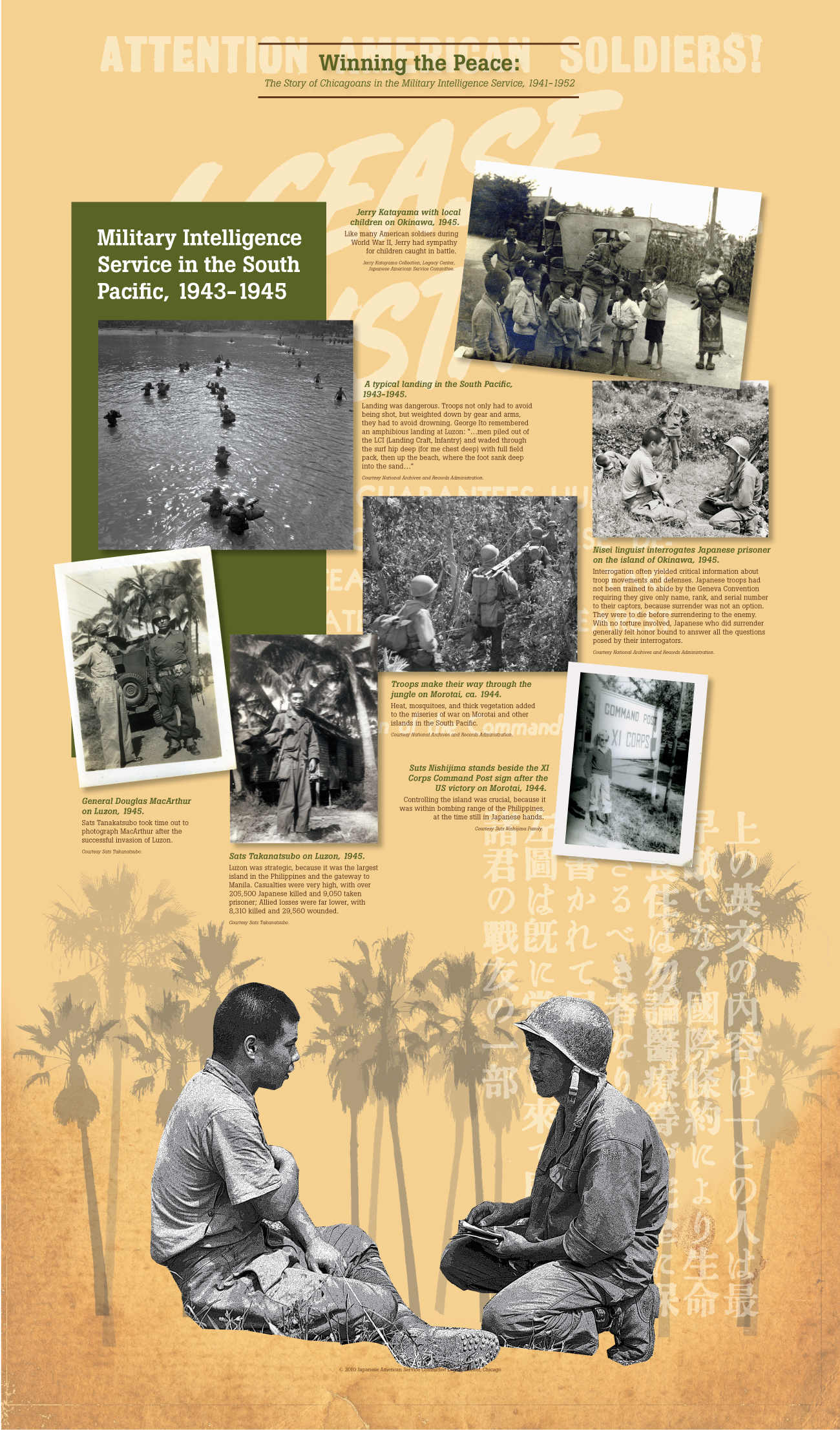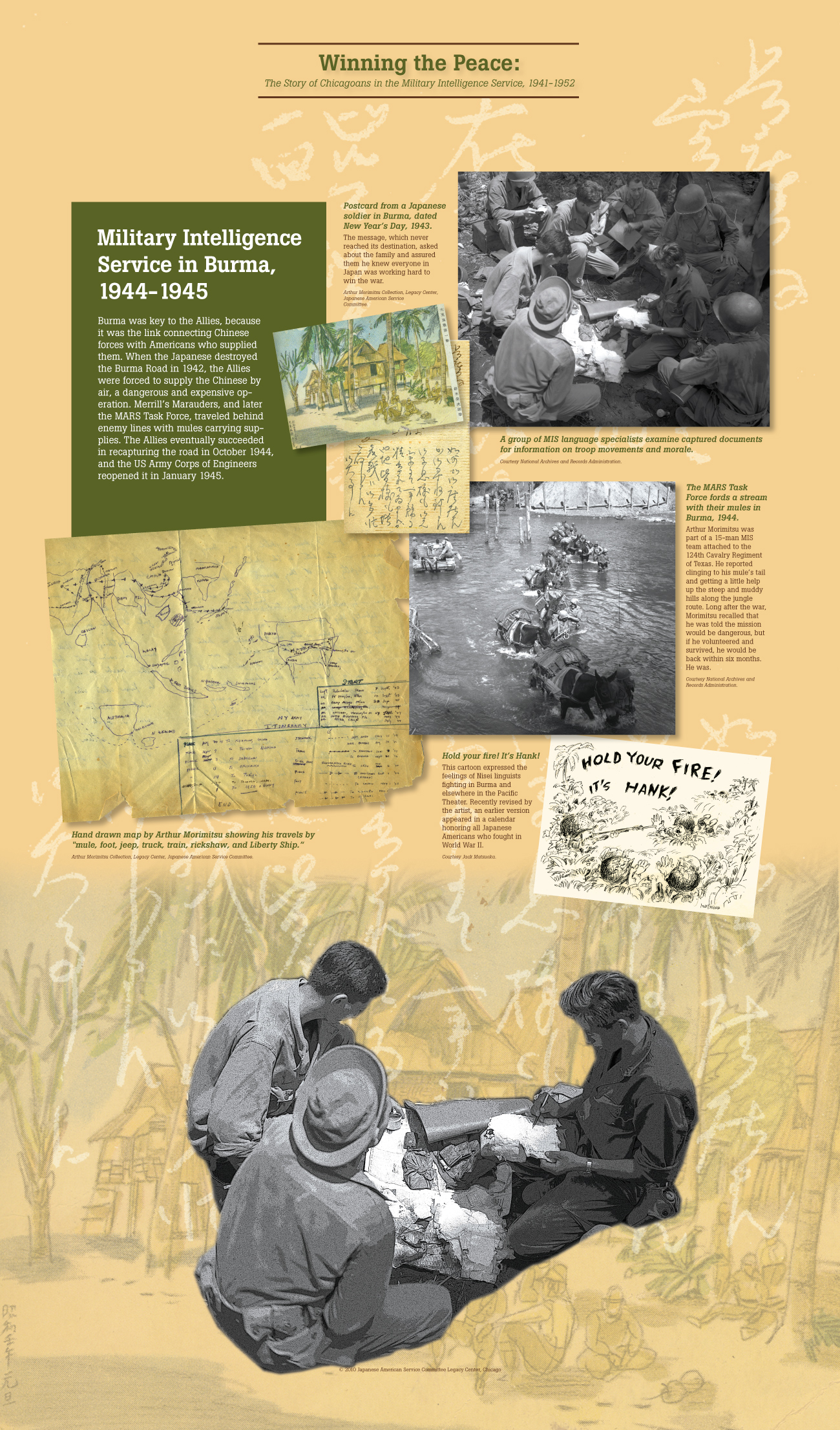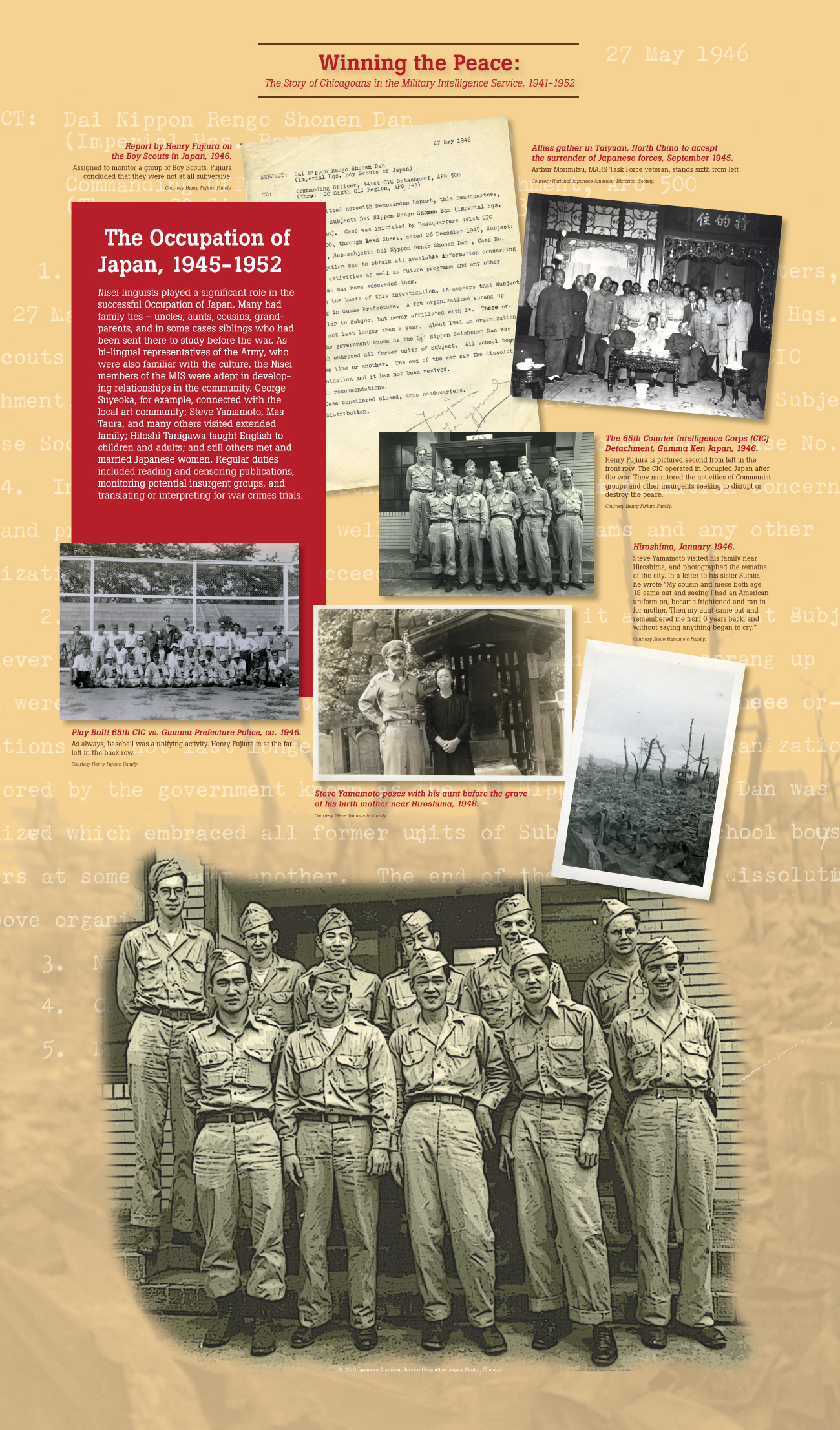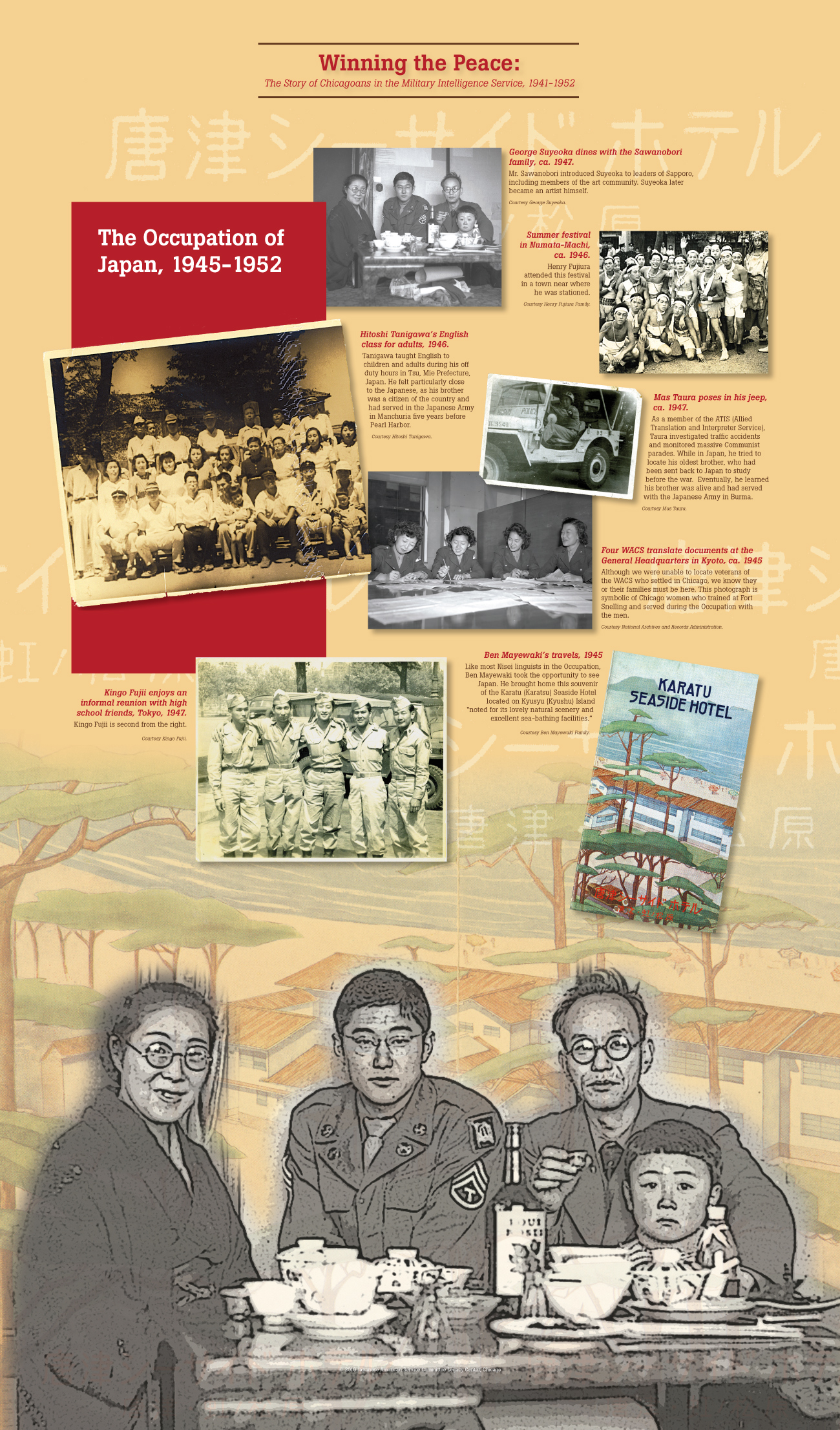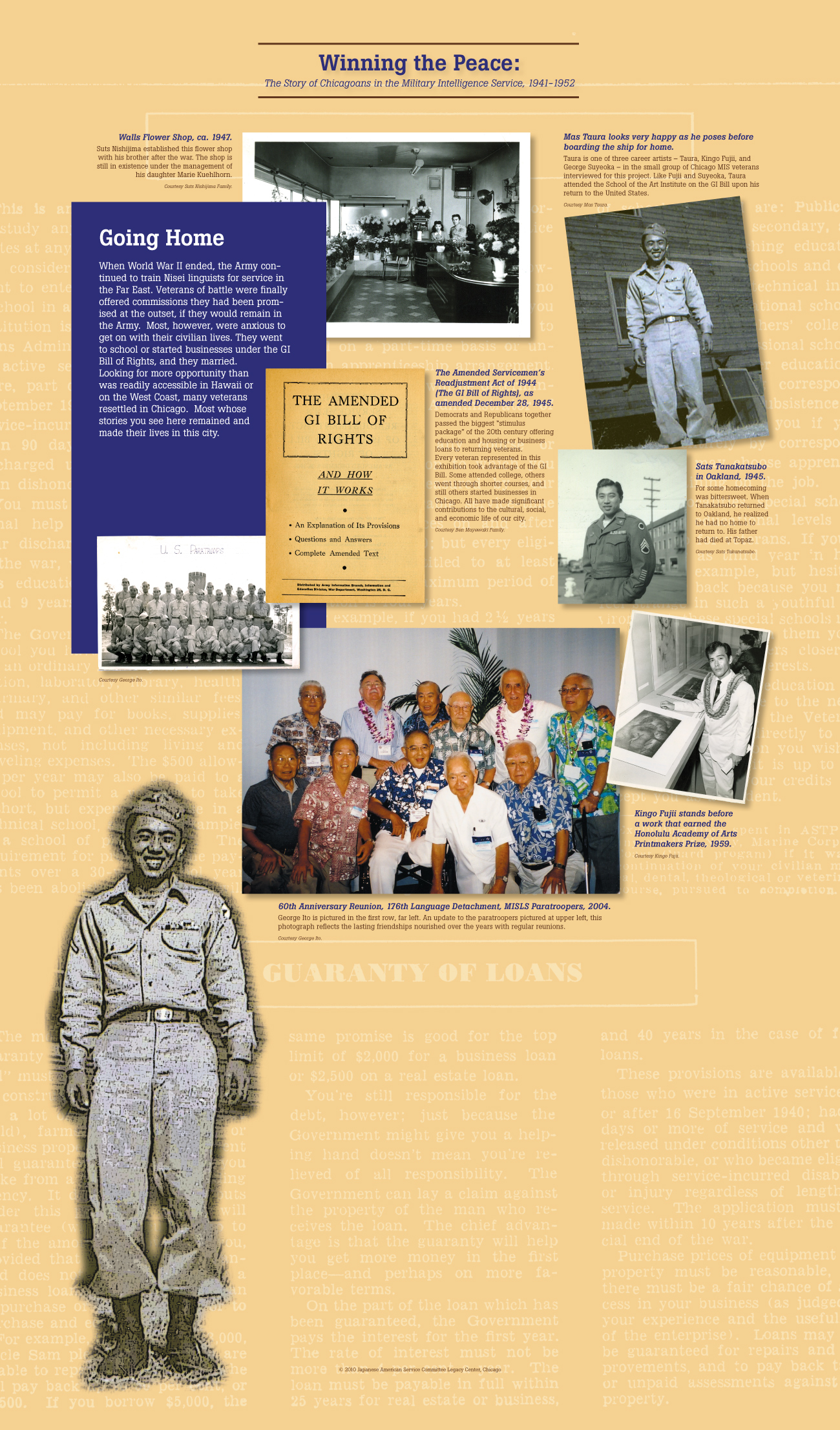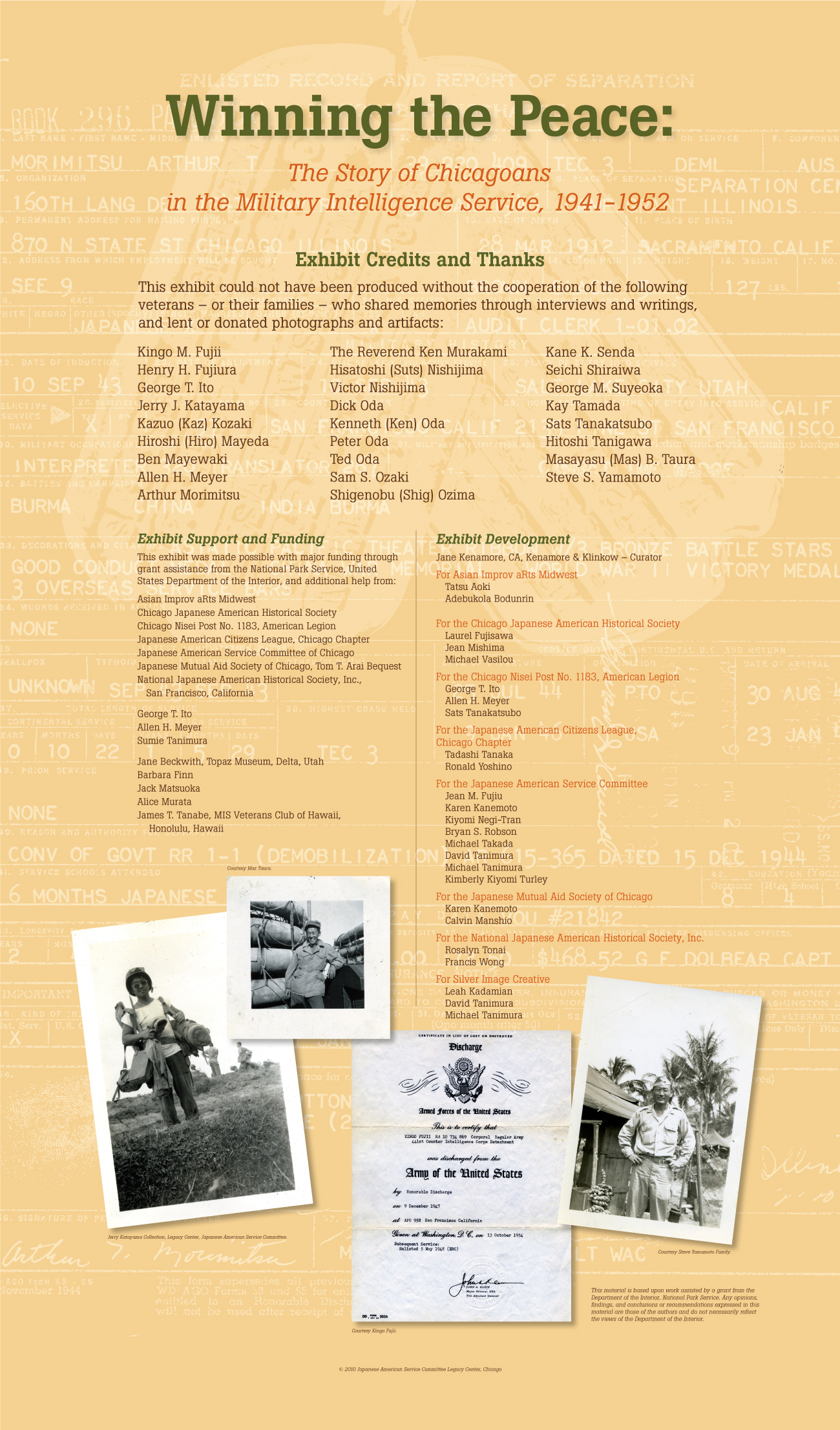Winning The Peace
Winning The Peace
Winning The Peace
Japanese Americans in the Military Intelligence Service, 1941-1952
Most Americans are familiar with the story of the 100th Infantry Battalion and the 442nd Regimental Combat Team during World War II. These Nisei soldiers fought horrific battles in Europe, and have been honored by Presidents. Their stories have been told through movies, books, and by the veterans themselves.
The Military Intelligence Service (MIS), on the other hand, was less celebrated, but no less critical to our winning the war and securing the peace in Japan. The MIS was composed mostly of Japanese Americans, who were among the few at the beginning of the war who knew the language of the enemy.
During World War II, the Nisei linguists of the MIS were attached to military units and were part of the combat team, participating in amphibious and air landings and accompanying troops on the field of battle. Their job was to interrogate prisoners and encourage others still in hiding to surrender. With an intimate knowledge of the Japanese culture, as well as the language, the Nisei linguists were able to elicit information and achieve actions others could not. They also translated captured documents detailing defense plans, troop movements, artillery and heavy mortar locations, all factors that helped Americans end the war.

The effectiveness of the Nisei linguists came at great personal cost. Having lived with discrimination at home, including the incarceration of their families, they were now asked to risk their lives to defeat the country of their parents and grandparents. Virtually all had extended family in Japan, and some had brothers serving in the Japanese army. While internal conflict was intense, the linguists overcame their feelings to serve the land of their birth.
In contrast to the war, the Occupation was seen, almost universally, as a rewarding experience. It was a chance to see Japan, connect with family, and for some, to meet Japanese girls or find a wife. From the military perspective, Nisei linguists contributed to a successful peace. They monitored the activities of potential insurgent groups, translated publications, and repatriated Japanese returning from Europe and other countries in Asia. Above all, their familiarity with the language and culture of Japan allowed them to be an effective bridge between the United States Occupation forces and the Japanese people.
Though the MIS and its Nisei linguists did so much to win the war and the peace, little is known about their exploits. Part of this is because intellectual activities seldom get the attention of battle heroics; though MIS linguists frequently were attached to combat units. Stories of beach landings amid enemy fire; or marching behind enemy lines in Burma; or parachuting into battle zones are just now becoming known. But perhaps the major reason the MIS story is not widely told is because the veterans themselves were forbidden to speak of their service until the 1970s. Consequently, even families of MISers often have little information on what their fathers or uncles did during the war.
Please see the gallery of the exhibit panels below. Right-click and choose “Open in new tab” to see them at full resolution.
Additional Content
There were extensive interviews done with Military Intelligence Service veterans as part of the research for this exhibit. Six videos were made from these interviews by Asian Improv aRts Midwest. You can see these videos on the Video Interviews page.
The topics covered include:
On the Frontlines
What goes through a young soldier’s mind on his way to his first combat assignment?
Speakers: Sats Tanakatsubo, Kane Senda, George Ito
Recruitment and Training
Military Intelligence Service Language School.
Speakers: Sats Tanakatsubo, Mas Taura, George Suyeoka, Kane Senda, Allen Meyer, Ken Murakami
Pearl Harbor
Eyewitness accounts of December 7, 1941.
Speakers: George Suyeoka , Hitoshi Tanigawa, Seichi Shiraiwa
Soldiers of the Occupation
Everyday life with American soldiers in postwar Japan.
Speakers: Mas Taura, George Suyeoka, Allen Meyer, Kingo Fujii, Hitoshi Tanigawa, Ken Murakami, Seichi Shiraiwa
Finding Family and Friends
Reaching out to family and other Japanese citizens brings both surprises and rewards.
Speakers: Mas Taura, Kingo Fujii, Hitoshi Tanigawa, George Suyeoka
American Soldiers, Japanese Ancestry
The difficulties of serving a country that suspects your loyalty.
Speakers: George Ito, Hitoshi Tanigawa, Allen Meyer, Sats Tanakatsubo, Seichi Shiraiwa, Kane Senda

